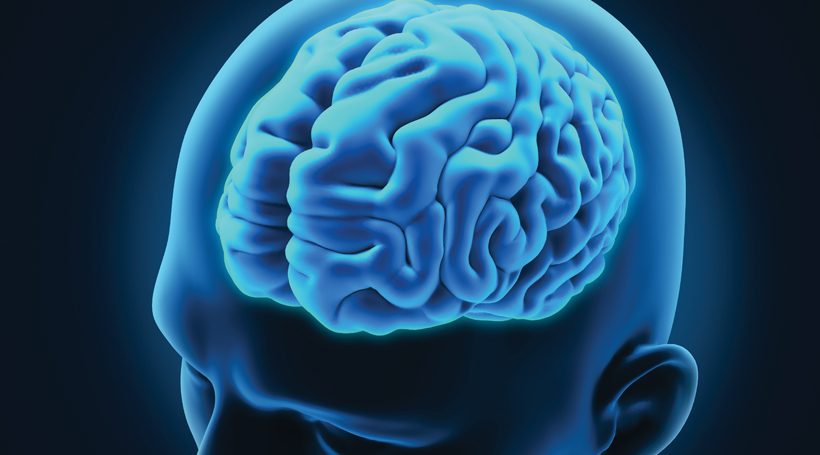When you break your leg, you get an X-ray, wear a cast, walk with crutches. When you pull a muscle, you rest on the couch. But when you have a traumatic brain injury, there’s no one way – no easy way – to recover.
“The brain is an extremely delicate and nuanced organ that affects many areas of the body, so even if people have a similar injury, their diagnosis and rehab can be completely different experiences,” says Andro Zangaladze, MD, a neurologist at Jefferson Health – New Jersey.
Some of the most common brain injuries are traumatic injuries due to a car accident or fall, or from a health issue like a stroke or brain tumor. Symptoms can range anywhere from severe chronic headaches to disrupted motor function control, speech loss and significant memory loss. Depending on the severity of the injury, some patients may do rehab – both physical and psychological – for a few weeks or months, while others may be in recovery for the rest of their lives.
But the difficult part is that even though these injuries can lead to extensive damage, they aren’t always clear-cut to diagnose.

Andro Zangaladze, MD
“As neurologists, we’re constantly learning new ways to detect brain damage, but we still lack the comprehensive, objective tools that can instantly diagnose a patient,” says Zangaladze. “If you’re a cardiologist, you can use an angiogram or EKG to diagnose a heart attack. While we can use MRIs or other tests to help us, that can’t be it. We still have to be creative and attentive to all symptoms when we meet a patient.”
Brain injuries can be difficult to diagnose, he says, because so many symptoms can be attributed to something else – or written off altogether as something that “will probably pass,” like headaches, dizziness, difficulty concentrating, depression, anxiety and behavioral changes. Even seemingly separate symptoms can lead back to the brain – things like fatigue, weakness, muscle pain, tingling, numbness and even seizures. Neurologists have to be attentive to even the smallest signs.
When doctors detect a brain injury, one of the first recommendations is to rest mentally, which isn’t as easy as just elevating a sore knee.
“We ask patients to sleep a lot, not work on the computer, not read, stay out of stressful situations – stay away from anything that may strain their brain,” says Zangaladze. “Putting too much stress on the brain can worsen symptoms.”
Avoiding that is especially important because patients become increasingly more susceptible to recurrent brain trauma after that first one, which may lead to worsening symptoms or even brain swelling, which can be fatal, he says.
For many patients, these injuries can mean weeks or months spent relearning different cognitive functions, says Sarah West, PhD, a neuropsychologist at Bancroft NeuroRehab. Now that it’s harder to hold detailed bits of information in their minds, patients may have to regain their comprehension, learn how to manage their finances or figure out how to go back to work in the same capacity. Many also experience physical symptoms.

Sarah West, PhD
“Patients may have to go through occupational therapy to address changes in fine motor skills – what to do with their hands, their upper body,” says West. “For people with severe injuries, that could mean relearning small things like how to brush their hair, get dressed, brush their teeth, even speak and swallow.”
That can take a toll on a patient’s emotions as well, she says.
“Psychological and emotional symptoms are common,” says West. “It can bring a lot of mental health issues, whether it is as a direct result of damaging the part of your brain that controls emotions or personality, or whether it’s from the frustration of having to relearn skills you did so effortlessly in the past.”
Sometimes, people exhibit changes to their behavior, like becoming more impulsive or disinhibited – even going so far as to change their personality completely. It’s not only challenging for the person with the injury, she says, but also for everyone around them as well.
“These changes in function, speech, memory and mood can have a big impact on a person’s relationships and family structure,” says West. “Let’s say the patient was in their 20s. Now, the parents may have to come back into more of a parenting role than they thought they’d be at this stage. If an older adult is hurt, now the kids may have to take on caregiver responsibilities. A person’s role as a spouse may change to a caregiver. It brings on stress and ultimately can force people to feel like they’re coping with the loss of who their loved one was before the injury.”
Because even though many patients do eventually recover, many also have permanent damage that leads them to never fully return to their old self. That can come with stigmas out in the world, she says.
“Anytime there’s a change to someone’s brain and how it’s working, people unfortunately don’t know how to react,” says West. “If someone breaks their arm, it’s an easy thing to understand. You see a cast and you know to open a door or help them carry books until the cast is off.” When the disability is cognitive, it’s harder, she says.
“A lot of times, when people can’t immediately see that you have an injury just by looking at you, they don’t understand how to help,” says West. “If your mood or personality changes, they don’t understand why or know how to handle that.”
“One of the biggest things I hear from folks with mild injuries is that no one recognizes their trauma because they look normal and speak normal,” she adds. “They don’t recognize the struggles they’re going through, and they don’t feel seen or understood. From a mental health standpoint, that’s significant.”














